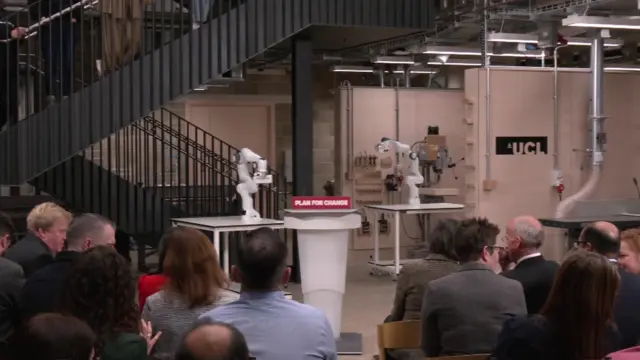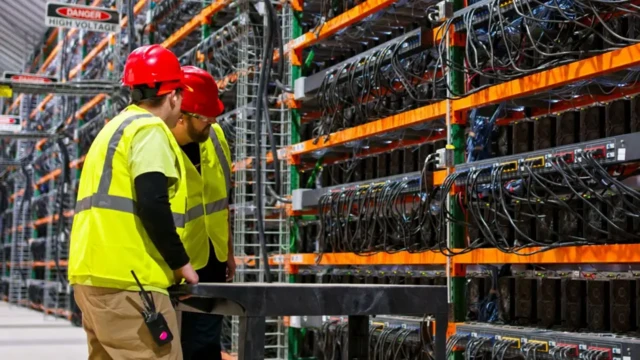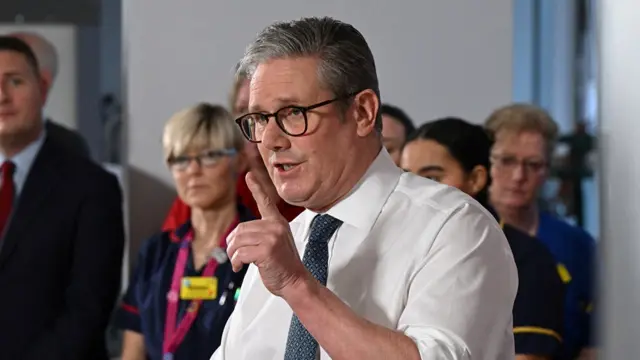We'll create AI growth zones, PM sayspublished at 11:52 GMT 13 January
Starmer says his government is determined for the UK to become the best place to start and scale an artificial intelligence business.
The prime minister says there's never been a better moment for entrepreneurs with ideas and the government will be creating AI growth zones, which will give a boost to sites in Oxfordshire among other places.
He says planning processes will also be supported for those working in AI growth zones, meaning that data centres can be built with fewer hurdles.




